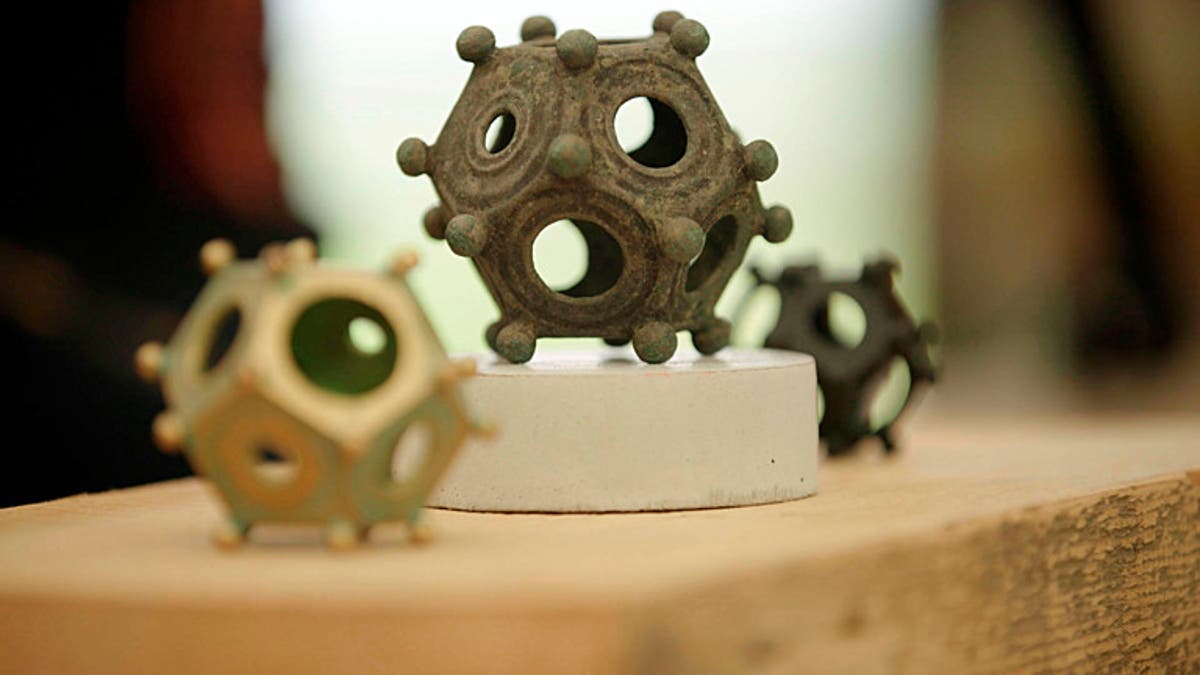A mysterious Roman object unearthed in an amateur dig has baffled experts as it goes on display in Britain for the first time.
The 12-sided object was discovered in Norton Disney, near Lincoln, in 2023, and will go on display at Lincoln Museum as part of the city’s Festival of History.
Richard Parker, secretary of the Norton Disney History and Archaeology Group, said it was a “privilege to have handled” the dodecahedron, but was still at a loss over what it was.



First thing that pops into my head is that it was used to lash poles together for tents, awnings, military banners, etc. I am no doubt wrong. But for some reason I think they would work nicely for that purpose, and make the whole kit portable and easy to set up and tear down.
That might actually have been a good guess.
I’d go with some sort of game- like jumping jacks, maybe. Or some sort of weird bocce ball.
My immediate thought was that it was just some kinda ancient fad, like fidget spinners.
Why make such a complicated ass shape when a rope or thong of leather would serve the same end?
Also, they’re commonly found stored with people’s valuables - coin stashes, jewelry, etc. They were clearly valuable. Many of them don’t appear to have any wear on them either, so if they had a utilitarian use it likely didn’t involve lashing stuff together.
My guess is just a good luck charm type of thing. The Romans had a lot of those.
deleted by creator
They weren’t cave men, they had plenty of metal stuff.
These dodecahedra are vastly over-complicated for “utilitarian” uses. As Boinkage says, if you need something for fastening some ropes together just to lash stuff, why use an intricate forging like this? All those knobs, the complex hollow shape, the variously-sized holes, those are features that took a lot of work to add. If it’s a utilitarian piece then those features need to be for something. Otherwise we’d be finding examples of simpler versions that lacked those features.
The “they could be for knitting glove fingers” idea, for example, could be just as easily done using a hunk of wood with five nails driven into it.
Erector bobs